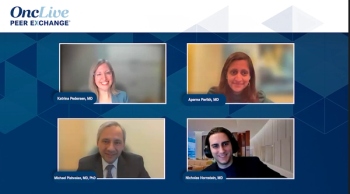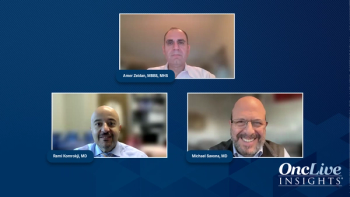
Looking Ahead For the Treatments of R/R MM
Panelists discuss how health care professionals can prepare for emerging trends in treating relapsed/refractory multiple myeloma (R/R MM) by staying informed on innovative therapies and adapting to evolving patient care strategies.
Episodes in this series

Video content above is prompted by the following:
Treatments of R/R MM
The treatment landscape for R/R MM is evolving rapidly, with new therapies on the horizon. Health care professionals must stay informed about these emerging trends to offer the best patient outcomes. Key developments include the following:
- Novel Drug Classes and Mechanisms: New drug classes, such as BCMA-targeted therapies, bispecific antibodies, and chimeric antigen receptor T-cell therapies, are showing promise in improving responses for patients with R/R MM. Understanding their mechanisms and integration into treatment protocols is essential.
- Personalized Treatment Approaches: Advances in genomics and molecular profiling are enabling more personalized treatment plans. Physicians should consider utilizing genetic and biomarker testing to tailor therapies that are most effective for individual patients.
- Combination Therapies: Combining new agents with standard treatments may enhance efficacy. Physicians must remain vigilant in assessing the safety and effectiveness of these combinations.
- Managing Adverse Effects: As newer treatments enter the market, managing novel adverse effects becomes critical. Continuous monitoring and patient education on potential adverse events will be necessary.
- Clinical Trial Involvement: Participation in clinical trials provides patients access to cutting-edge therapies. Physicians should actively discuss trial options with eligible patients.
How Health Care Professionals Can Prepare:
- Stay updated with ongoing clinical trials and drug approvals.
- Gain expertise in novel therapies and their specific indications.
- Advocate for and facilitate personalized treatment plans.
- Be proactive in educating patients about emerging options and potential adverse effects.
- Integrate interdisciplinary collaboration to ensure comprehensive care.
Conclusion
As the landscape of R/R MM treatments evolves, health care professionals need to be agile in their knowledge and application of emerging therapies, ensuring that patients receive the most advanced care available.



































